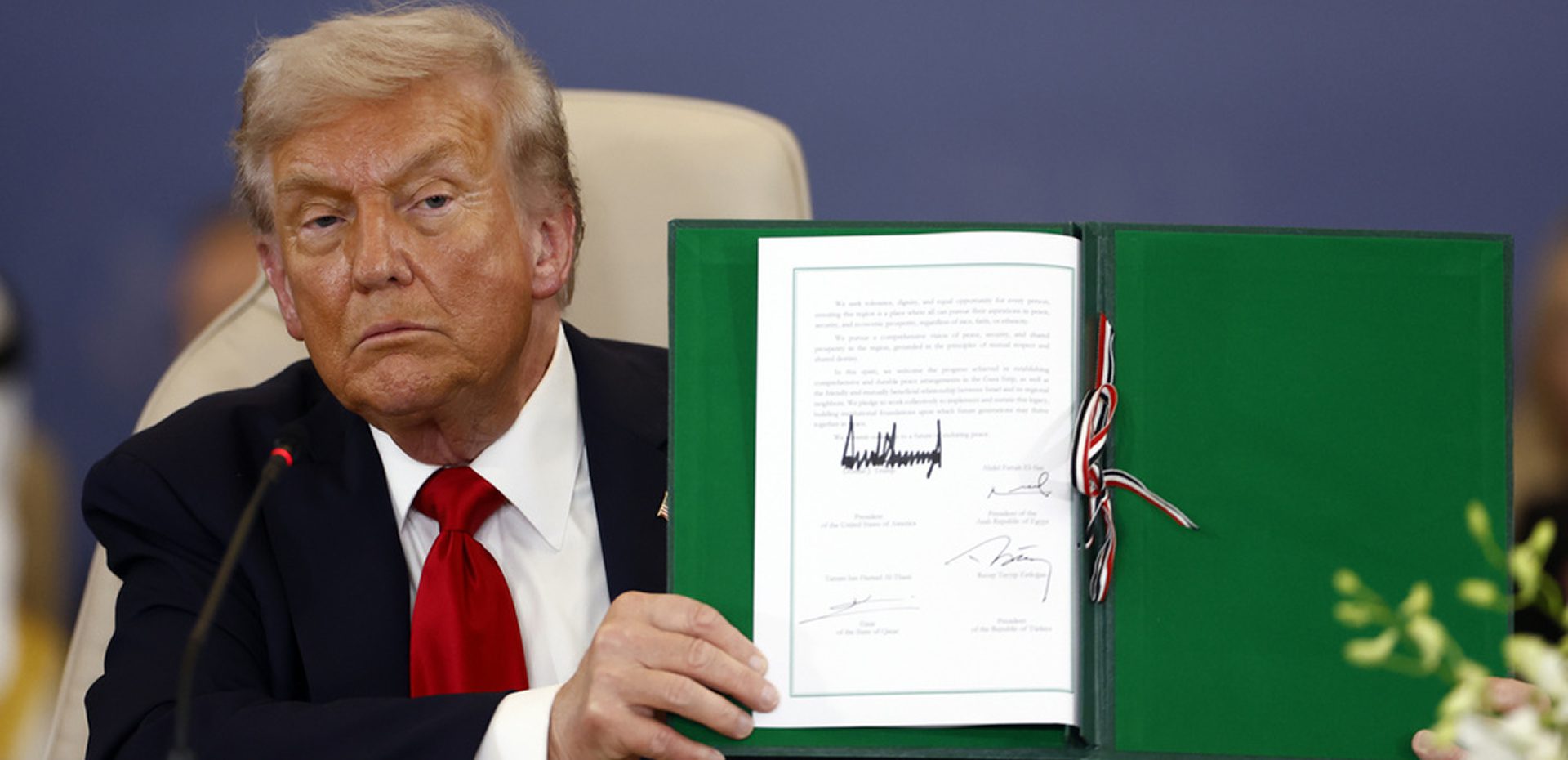A sideshow: How the war in Ukraine has undermined Russia’s influence in the Middle East

Russia is rapidly losing its status as an independent player in the Middle East, having redirected its attention and resources to the war in Ukraine. Whereas the Kremlin previously sought to position itself as a mediator between regional power centres, its involvement today is limited to rhetorical gestures and ad hoc actions aimed more at preserving the image of a great power than at exerting real influence. The Middle East has become a secondary track in Russian foreign policy, subordinated to the broader logic of confrontation with the West, with the Ukrainian front the primary focus for now.
On the margins of the Middle East
Vladimir Putin continues to view the Middle East as a theatre of competition with the West and a source of prestige. The Kremlin seeks to preserve its status as an ‘alternative centre of power’ and a universal intermediary – not so much to engage in conflict resolution as to demonstrate that peace in the region is unattainable without its involvement. Moscow traditionally supports those who challenge Western influence – regardless of who they are – while striving to maintain a balanced posture and to avoid direct confrontation with other major actors.
For many years, Putin maintained working relations with Israel, establishing a direct channel of communication with Benjamin Netanyahu despite Russia’s military presence in Syria and its close ties with Iran. However, the Hamas attack on Israel on 7 October 2023, and the subsequent war in Gaza, disrupted the previous Russian approach of ‘equal distance’ between Israel and the Palestinians. Seeking to use the crisis to criticise the US, Russia blamed Washington for the escalation, describing the events as a ‘failure of US policy’. Putin’s meeting with a Hamas delegation in Moscow shortly afterwards – officially justified by concerns about Russian hostages – was perceived in Israel as an act of support for terrorism that went beyond the bounds of acceptable diplomacy.
This episode reflected a new reality in Russia’s Middle East policy: Hamas has become one of the few actors with whom the Kremlin is still able to maintain a direct dialogue. Most key players – from Saudi Arabia to Egypt and the UAE – have shifted to a posture of pragmatic distance. They are willing to discuss oil exports, logistics, and imports of Russian agricultural goods but not security or conflict resolution. The Syrian track has effectively come under the control of Turkey and Iran, while mediation on the Palestinian issue is now led by Qatar and Egypt.
Even Russia’s contacts with Hamas are largely symbolic. Their purpose is to demonstrate that Moscow retains access to Middle Eastern diplomacy and can engage with actors shunned by the West, a message aimed at countries of the Global South and embedded in the narrative of a ‘multipolar world’. Domestically, the Kremlin uses these contacts as proof that Russia is not isolated and remains present on the global stage. In practice, however, Russia’s diplomatic activity in the Middle East lacks both genuine leverage and trust from regional players.
Russia’s absence from the ceasefire negotiations between Israel and the Palestinian armed groups in the Gaza Strip, as well as its non-participation in the recent peace summit in Sharm El-Sheikh , further confirmed its marginalisation in the Middle East. Equally telling was the cancellation of the first Russian–Arab summit, initially scheduled for April 2025. The Kremlin had hoped to use the meeting to showcase its political influence and send a signal to the West – and to Donald Trump in particular – that Russia remains a significant player in the Arab world. However, the event did not go ahead: most leaders of the Arab League declined to confirm their attendance, and the initiative collapsed. Putin attributed the cancellation to a desire not to interfere with the peace process launched by the US, but in effect it amounted to an admission that Moscow is no longer seen as a relevant forum for dialogue.
Tomahawks take priority
With the war in Ukraine still Moscow’s overriding priority, Putin has adopted a cautious approach in the Middle East. On the one hand, the Kremlin signals its readiness to accommodate US initiatives in the region. On the other, it invokes support for Palestinian statehood as a reminder that Russia retains the capacity to intervene in Middle Eastern affairs should its interests on the Ukrainian front be disregarded. Against this backdrop, Donald Trump’s decision to withhold Tomahawk missile deliveries to Ukraine may be seen in Moscow as indirect confirmation that this approach is proving effective.
This logic is also evident in Russia’s public messaging. While much of the world has been focused on Trump’s diplomatic achievements in the Middle East, the topic has received scant attention in Russian media. In recent weeks, Trump’s name has appeared far more frequently in connection with US plans to arm Ukraine and the risk of a direct confrontation with Washington than in the context of his Middle Eastern diplomacy.
At the same time, the Kremlin continues its traditional practice of conveying different messages to external and domestic audiences. It has issued a clear warning to the West: the supply of long-range missiles to Ukraine will lead to the collapse of dialogue and an escalation of the conflict. Domestically, by contrast, it projects confidence that the war in Ukraine will end soon with Ukraine’s defeat and that Russia is invulnerable to increased pressure from western sanctions.
If the ceasefire in the Middle East does not hold and the peace process unravels, Moscow is likely to see renewed opportunities for active re-engagement in the region. But for now, it has no need to question Trump’s diplomatic success and still hopes to encourage him to put pressure on Ukraine to end the war on terms advantageous to the Kremlin.